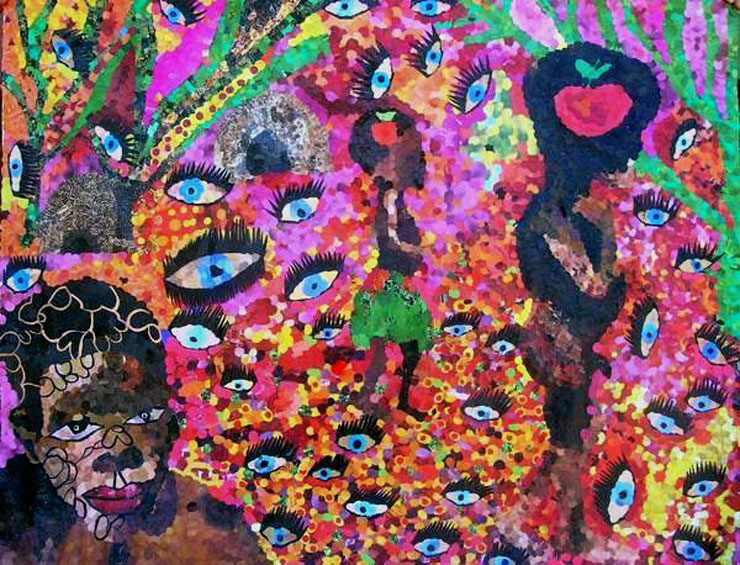Mutual Aid Vs Social Darwinism
By Milan Djurasovic
20 August, 2013
Countercurrents.org

Many of you are familiar with the term “survival of the fittest”. This expression was coined by English philosopher Herbert Spencer, the father of Social Darwinism and a man whose work has had (and continues to have) an enormous influence on how people and institutions function. Social Darwinism is an ethical theory which declares that the fittest and healthiest among us will and should survive and thrive, while the feeble and unfit will and should be allowed to perish. Spencer wrote about this idea long before Darwin published his theory of natural selection, but Spencer later incorporated Darwinian ideas to bolster his arguments. For example, Spencer used the concept of organisms' adaptation to different conditions to argue that the rich and powerful were simply better at adapting to the social and economic circumstances of their time. He asserted that these people are naturally equipped with superior traits which make them prosperous and, consequently, it is only natural and proper for them to thrive — even if their success is contingent on the suffering of the feeble.
Extreme disciples of Social Darwinism argue that colonialism, aggression, and plundering are justifiable because these actions are in line with the laws of nature. The natives who are enslaved and abused are dismissed as inferior organisms unworthy of their resources. The winners of military conflicts are necessarily, and according to this theory, biologically fitter — and therefore they should do whatever they want with the conquered. For a while now, a similar line of argument has been used to justify the concentration of power that is held by transnational corporations and investment bankers/gamblers (the “fittest” bunch of our day). Whenever we hear politicians talk about the destructive “welfare state” and the “freeloaders” who live on government handouts (and who are supposedly responsible for the debt and the dysfunction of their state), what we are hearing is Social Darwinism. “The strong should live and the weak should die. This is the way nature works,” its proponents will argue. “We can't call a wolf immoral for devouring a deer when it is biologically programmed to do that. There is no alternative!”
There is an alternative to Social Darwinism and it is called Mutual Aid. Mutual Aid: A Factor of Evolution is a book by Peter Kropotkin , a Russian evolutionary theorist, philosopher, scientist, geographer — and a man who gave up his aristocratic title (and it was a big one: “Prince”) at the age of 12. In this work, which is rich with first-hand observations and historical evidence, Kropotkin argues that it is cooperation rather than vicious competition that is the driving force behind a flourishing society. Kropotkin writes that “those communities, which included the greatest number of the most sympathetic members would flourish best, and rear the greatest number of offspring.” Our ancestors were physically weak and vulnerable apes who would have been wiped out if ruthless competition, and nothing else, was the name of the game. Collectivism and teamwork, rather than unbridled individualism, is what helped our ancestors survive.
Ants are known to regurgitate a drop of transparent fluid when they encounter a hungry fellow ant. Bands of white-tailed eagles survey their hunting grounds together (as individual hunters would not be nearly as successful), and when food is captured, the younger ones keep watch while the older ones have their lunch. Aleoutes, an indigenous people in Alaska , equally divided all of their spoils of hunt. If one member showed greediness when the division of resources took place, the other members gave their portion to the greedy man to embarrass him. For Hottentots, the native people of South Africa , it was outrageous and disgraceful to eat without having loudly shouted (three times) to see whether there was a fellow tribesman in need of food. These are only a few out of many examples that Kropotkin lists and writes about in this particular work.
The absence of common interest gives birth to greed and indifference. Mutual aid, Kropotkin argues, is the origin of moral instincts — and it is a law of nature and evolution. The praise and practice of rugged individualism and selfishness has resulted in a world where the total value of the world's derivatives trades (Wall Street gambling, essentially) exceeds one quadrillion dollars; a world where powerful corporations are given contracts to do business in any part of the world that smells of profit; and where the very survival of our species is threatened by climate change. But even they, the “fittest” of our day, are unable to keep that title on their own. Even they require the “aid” of the governments and the contributions of the “weak” who bail them out when they commit enormous blunders that adversely affect every single human being on this planet. Elsewhere in his work, Kropotkin writes that “courage, devotion, the spirit of sacrifice, are as contagious as cowardice, submission, and panic.” I would also add greed to the latter list.
This article is courtesy of Milan Djurasovic , a Bosnian American collage artist, blogger, and a book author. He currently lives and works in St. Petersburg, Russia. His educational background is in psychology and history.
Comments are moderated


